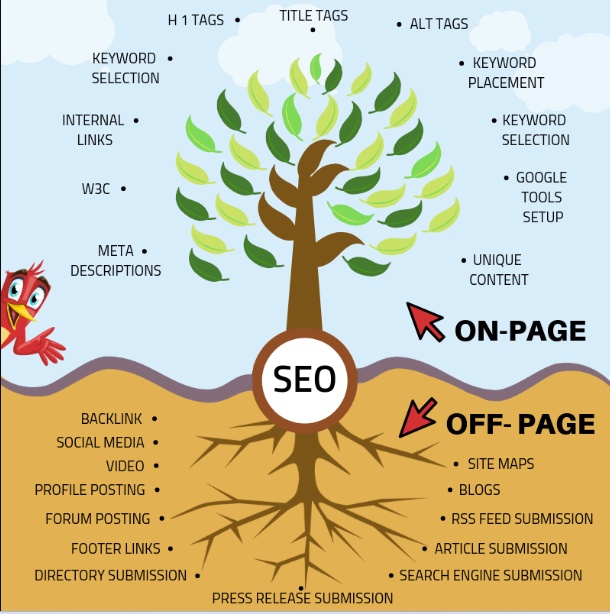Introduction:
In the ever-evolving landscape of digital marketing, Search Engine Optimization (SEO) stands as a crucial pillar for businesses striving to establish their online presence. SEO is a multifaceted approach that includes both on-page and off-page optimization techniques. In this article, we'll delve into the significance of on-page and off-page SEO and explore how they contribute to the success of your website.
On-Page SEO:
On-page SEO involves optimizing individual web pages to enhance their search engine rankings and attract more organic traffic. It focuses on optimizing various elements within the website to make it more search engine-friendly. Here are some key aspects of on-page SEO:
Keyword Optimization: Utilize relevant keywords strategically within your content, headings, and meta tags. This helps search engines understand the context of your content and improves your chances of ranking for specific queries.
Content Quality: Create high-quality, informative, and engaging content. Search engines prioritize content that provides value to users. Regularly update your content to keep it fresh and relevant.
Meta Tags: Craft compelling meta titles and descriptions for each page. These tags serve as a brief summary of your content and play a significant role in click-through rates from search engine results pages (SERPs).
URL Structure: Optimize your URLs to be concise, descriptive, and user-friendly. A clear URL structure makes it easier for both users and search engines to understand the content of a page.
Header Tags: Use header tags (H1, H2, H3, etc.) to structure your content. This not only improves readability for users but also helps search engines understand the hierarchy of information on your page.
Off-Page SEO:
Off-page SEO involves optimizing factors outside your website to improve its online reputation and authority. It focuses on building relationships and acquiring backlinks from reputable sources. Here are some essential elements of off-page SEO:
Link Building: Acquire high-quality backlinks from authoritative websites in your industry. These links act as "votes of confidence" for your site and contribute significantly to your search engine rankings.
Social Media Presence: Establish a strong presence on social media platforms. Social signals, such as likes, shares, and comments, can indirectly impact your search engine rankings.
Online Reputation Management: Monitor and manage your online reputation. Positive reviews and mentions across various platforms can enhance your website's credibility.
Guest Blogging: Contribute guest posts to reputable websites in your niche. This not only helps you build backlinks but also establishes you as an authority in your industry.
Conclusion:
Balancing on-page and off-page SEO is essential for a comprehensive and effective digital marketing strategy. By optimizing your website's individual pages and building a strong online presence, you can improve your search engine rankings and drive more organic traffic to your site.
To see these principles in action, visit my website https://www.tousif.me/ for real-world examples of effective on-page and off-page optimization.


No comments yet